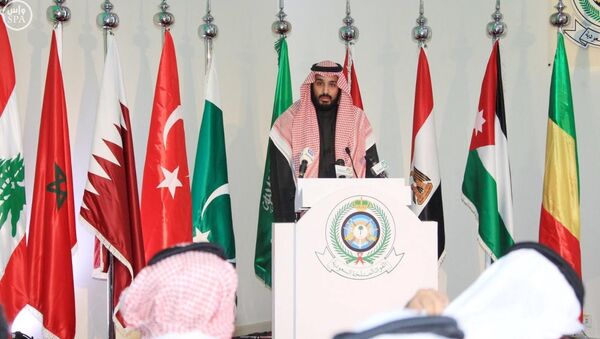Among them are countries with a majority of Shiite or Sunni population, including Jordan, the UAE, Palestine, Tunisia, Libya, Egypt, Qatar, Yemen, Turkey, a number of African Muslim nations as well as Pakistan, Bangladesh and Malaysia. Another 10 nations said they would be ready to join the coalition in the future.
The prince also did not give any details on what measures would be taken in the domestic policy of the coalition members, as terrorists receive funds from several of these countries.
This cannot be just a coincidence, an article for Il Manifesto read. Saudi Arabia has pushed to unite the Arab world against terrorism in a bid to restore its positions in the region. The kingdom has taken a back seat after Russia emerged as a major player in region, the author underscored.
After Riyadh has wasted months in attempts to use the Yemeni conflict to weaken Iran it realized that Syria was almost out of its zone of influence. This is why the Saudi government has put focus on Syria again. This was not a coincidence that talks with Houthi rebels in Yemen came along with the creation of the anti-Daesh coalition, the article read.
Besides Saudi Arabia, other members of the coalition also want to improve their roles in the region. Many Mideast nations have lost their influence in regional affairs, especially Jordan, Bahrain and the UAE, the author noted.
It’s also no coincidence that the news about the coalition came a day after US President Barack Obama’s call for Arab nations to intensify the fight against Daesh. Obama’s presidential term is nearing its end and it seems like he is disappointed with the results the US’ weak strategy has produced in the Middle East. Now there is one last chance for Washington to restore its role in the region.




